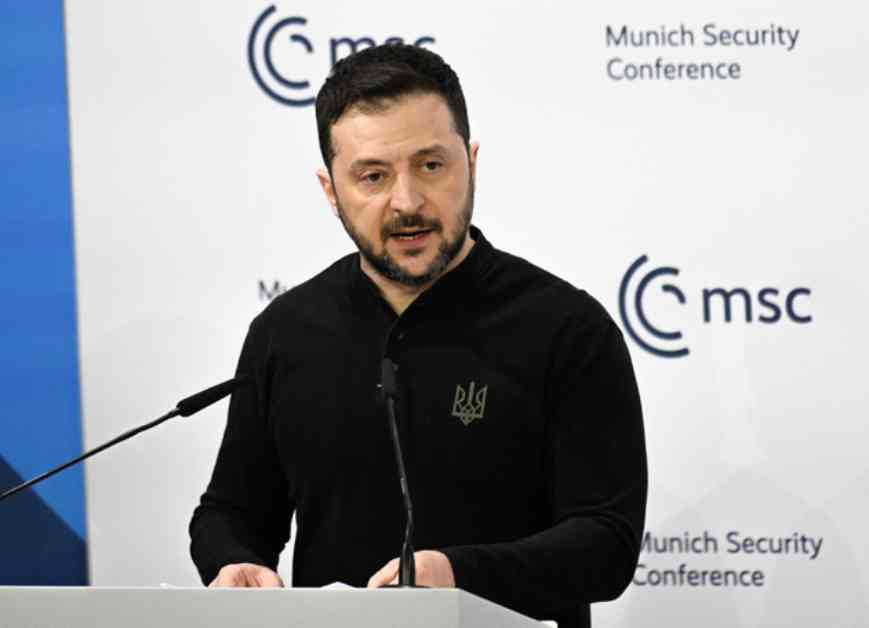The second day of the Munich Security Conference was a whirlwind of political drama, highlighting the delicate balance between peace and conflict on the global stage. From Ukrainian President Volodymyr Zelensky’s inspiring call for a unified European army to the controversial speech by US Vice President JD Vance, the conference was a melting pot of ideas, tensions, and alliances.
German Chancellor Olaf Scholz set the tone for the day with a keynote address that underscored the looming specter of right-wing ideology in Europe. As the upcoming Bundestag elections draw near, Scholz’s Social Democratic Party (SPD) faces a challenging political landscape, with the Christian Democrats (CDU) and the right-wing Alternative for Germany (AFD) vying for power. The Chancellor’s condemnation of any glorification of Nazism and external interference in Germany’s democratic processes struck a chord with the audience.
The controversial meeting between JD Vance and AFD leader Alice Weidel, coupled with Elon Musk’s open support for the AFD, raised concerns among German politicians and citizens alike. Friedrich Merz, a prominent figure in the CDU, echoed Scholz’s sentiments, emphasizing the importance of upholding democratic values while maintaining close ties with the Trump administration to avoid a potential trans-Atlantic trade war.
Zelensky’s powerful address breathed new life into the conference, as he advocated for a united European military force to defend against external threats. His impassioned plea for European-made military technology to match Ukraine’s prowess in drone production resonated with the audience. The Ukrainian President’s call for a unified European foreign policy, coupled with a cautious acknowledgment of America’s role in security, underscored the need for collaborative action in the face of escalating tensions.
The urgency of supporting Ukraine in its quest for security and stability was a recurring theme throughout the conference. Danish Prime Minister Mette Frederiksen and German Foreign Minister Annalena Baerbock emphasized the importance of NATO membership for Ukraine as a crucial step towards ensuring lasting peace in the region. Lindsey Graham, a South Carolina Republican Senator, proposed a comprehensive plan that included a minerals agreement, weapon delivery, and automatic NATO membership for Ukraine in the event of Russian aggression.
As the conference drew to a close, the focus shifted to concrete actions that would determine the level of support Ukraine receives in its struggle for autonomy and security. The final day of the Munich Security Conference promises to be a pivotal moment in shaping the future of European security and stability, as leaders grapple with the complexities of maintaining a delicate balance between peace and conflict on the global stage.

















